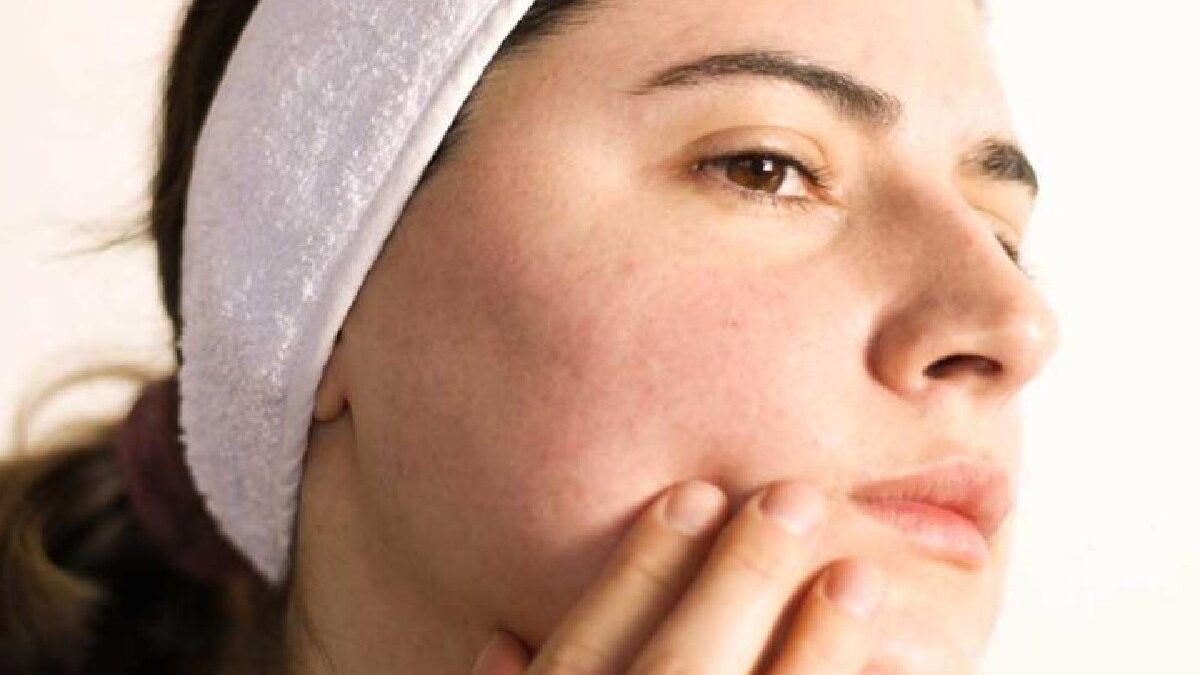Rosacea is a chronic disorder that affects the skin of the face, especially the cheeks. This disease causes reddening of the skin and the appearance of pimples and pimples. It is a more common disorder among adult women and people with fair skin.
There is no known cure for rosacea, but it is not a severe disease. Various treatments and prevention methods can alleviate and make life easier for people with this skin problem.
types of rosacea
Rosacea can be classified into three different stages:
- Erythematous-telangiectatic rosacea (Stage 1): Appears in the centre of the face and can do so abruptly. In this case, the skin is usually inflamed and sensitive to the touch.
- Papulopustular rosacea (Stage 2): It also appears in the centre of the face, but, in this case, less intensely and with small pimples, especially on the cheeks.
- Phymatous Rosacea (Stage 3): The skin thickens due to degeneration of the dermis. It can appear on the nose, on the eyelids, on the chin or the forehead.
Common Symptoms
Rosacea must be distinguished from other skin disorders, such as acne. In most cases, rosacea only occurs on the skin of the face and includes symptoms such as:
- Frequent facial flushing.
- Pimples or blackheads, sometimes with pus.
- Itching.
- Burning sensation in the area.
- Small red lines under the skin.
- Inflammation of the nose.
Less commonly, rosacea can cause eye problems such as redness, dryness, and itchiness. Also, the person may have the sensation of having sand in their eyes, and the eyelids may become swollen and inflamed.
Rosacea is not diagnosed with any test but can be identified by a healthcare professional based on a history of these symptoms and a skin exam. However, some tests can be performed to rule out other diseases, such as lupus or psoriasis.
rosacea treatment
To combat rosacea, treatment is usually focused on symptom control, with a combination of skincare and medications prescribed by the health professional. Rosacea occurs recurrently, so the treatment duration depends on the symptoms’ severity.
Health professionals may prescribe various medications until an effective treatment is found. These medications can be topical treatments to reduce redness, antibiotics, or oral medications to reduce acne. Treatment is more effective in the early stages of the disease, so it is essential to apply early treatment.
In case of pregnancy or lactation, it is essential to consult your doctor before starting treatment. Some medications, such as oral acne, can interfere with pregnancy and cause severe congenital disabilities.
skin care for rosacea
Apart from medications, various skin treatments can help combat rosacea. Some methods that can be used are: [5]
- Gentle cleansers: apply twice a day.
- Hot springs: can be used after cleaning or as a rescue product.
- Daily hydration: gels with soothing ingredients and anti-inflammatory and antioxidant properties.
- Sun protection: SPF 50+ photo protectors, also on cloudy days. In addition, it is convenient to use physical protection, such as hats or caps.
- Avoid chemical and mechanical exfoliants.
- Moisturizing masks: have soothing properties and help restore the skin barrier.
- Corrective makeup: it is used to neutralize redness thanks to its greenish tones (it has to be compatible with rosacea and not be aggressive with the skin).
Main causes of rosacea
One of the best strategies to prevent rosacea is to avoid potential triggers. While it cannot be eliminated, the disease can be controlled to some extent. The main ones are the following:
- Environmental factors include exposure to the sun, heat, cold or wind.
- Emotional factors such as anxiety or stress.
- Hormonal factors such as menopause or hormonal treatments.
- Some oral medications.
- Perform intense physical exercise.
- Take scorching foods, drinks, spicy, fermented cheeses, and alcoholic beverages.
- Cosmetics that can be aggressive on the skin.
- Associated pathologies such as cardiovascular diseases, migraine or hypervitaminosis D.
Tips to prevent and relieve
Rosacea is closely linked to habits, lifestyle, and external factors, so the person with rosacea plays a very determining role in their health. There are several tips and healthy habits that can be followed to reduce the impact of this skin disorder:
- In summer: avoid exposure to the sun, stay in relaxed environments and drink cold drinks.
- In winter: use moisturizing creams to protect the skin from the dryness of the cold and wind, and cover your face with scarves or balaclavas.
- Food and drinks: avoid caffeine if it affects stress, alcoholic beverages, hot liquids, spicy foods and fermented cheeses.
- Exercise: avoid intense effort.
- Menopause: in case of hot flashes, you must have cooling gels.
- Psychological treatment: identify sources of stress, manage anxiety, learn relaxation exercises and improve self-esteem.
- Treat the skin gently: avoid scrubbing the skin hard when applying cosmetics or creams, and shave with an electric razor to avoid damaging the skin.

